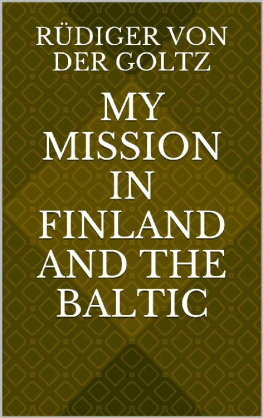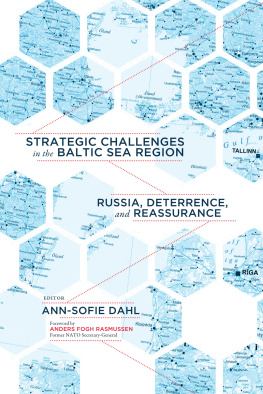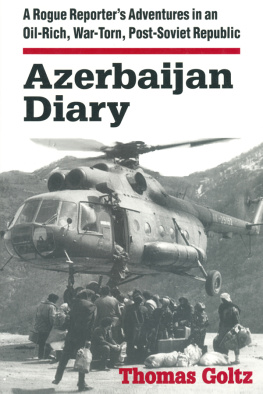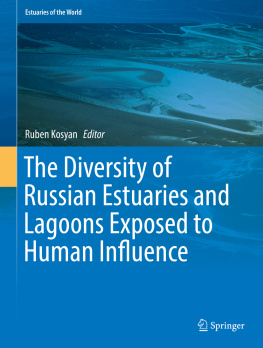Rüdiger von der Goltz - My Mission in Finland and the Baltic (Translation)
Here you can read online Rüdiger von der Goltz - My Mission in Finland and the Baltic (Translation) full text of the book (entire story) in english for free. Download pdf and epub, get meaning, cover and reviews about this ebook. year: 2013, publisher: Peter J. Kalnin, genre: Non-fiction. Description of the work, (preface) as well as reviews are available. Best literature library LitArk.com created for fans of good reading and offers a wide selection of genres:
Romance novel
Science fiction
Adventure
Detective
Science
History
Home and family
Prose
Art
Politics
Computer
Non-fiction
Religion
Business
Children
Humor
Choose a favorite category and find really read worthwhile books. Enjoy immersion in the world of imagination, feel the emotions of the characters or learn something new for yourself, make an fascinating discovery.
- Book:My Mission in Finland and the Baltic (Translation)
- Author:
- Publisher:Peter J. Kalnin
- Genre:
- Year:2013
- Rating:5 / 5
- Favourites:Add to favourites
- Your mark:
- 100
- 1
- 2
- 3
- 4
- 5
My Mission in Finland and the Baltic (Translation): summary, description and annotation
We offer to read an annotation, description, summary or preface (depends on what the author of the book "My Mission in Finland and the Baltic (Translation)" wrote himself). If you haven't found the necessary information about the book — write in the comments, we will try to find it.
My Mission in Finland and the Baltic (Translation) — read online for free the complete book (whole text) full work
Below is the text of the book, divided by pages. System saving the place of the last page read, allows you to conveniently read the book "My Mission in Finland and the Baltic (Translation)" online for free, without having to search again every time where you left off. Put a bookmark, and you can go to the page where you finished reading at any time.
Font size:
Interval:
Bookmark:
My Mission in Finland and the Baltic
by Rdiger von der Goltz
translated by Peter J. Kalnin
from the original German:
Meine Sendung in Finnland und im Baltikum
von General Graf Rdiger von der Goltz
Verlag von K.F. Koehler, Leipzig 1920
Translation copyright 2013 by Peter J. Kalnin
I would like to thank Martha Deacon for her prompt and high-quality copy editing, and Ed Zarins for providing a clean, well-lighted writer's retreat.

Table of Contents
The importance of von der Goltz's memoir has long been noted by scholars of the Baltic, Freikorps, and Weimar Germany; many histories cite Meine Sendung in Finnland und im Baltikum . Reading the book as a whole, though, lets the reader experience the German-speaking world as it moved from Wilhelmine stability through the trauma of war toward Nazism, in a way that scholarly distillations do not. It is a fascinating, if sometimes enraging, story.
In the 1936 second edition, re-titled Als politischer General im Osten , von der Goltz made some changes from the 1920 original: he omitted the first chapter about his earlier experiences in the World War as well as some details from the actions in Finland and the Baltic, and added chapters (the last one titled "Dolchstoss", or "stab in the back") and passages describing his army's defeat in November 1919. He voiced his frustration that his returning troops were not used to overthrow the Weimar government, and his proud belief that the German volunteers in the Baltic were the forerunners of Adolf Hitler. In the second edition he added some anti-Semitic remarks, and sharpened the rather muted ones in the first edition, but nowhere in the book did he endorse the Nazis' racial theories.
That first chapter shows von der Goltz was in his element in the Great War. In All Quiet on the Western Front , Erich Maria Remarque described with scorn those who spoke the language of national glory and patriotism, blind to the waste and futility of the war. Remarque could have cited von der Goltz verbatim, who ventured to hope that future German generations would be inspired by the soldiers who sacrificed themselves in trench warfare, just as his own generation was inspired by the Ostrogoth kings of the sixth century A.D. (p. 21 of the original). Von der Goltz also embraced the "stab in the back" idea, according to which Imperial Germany was never defeated, but the war was lost through treason; his claim that in 1918 the German people failed to live up to the second verse of Anastasius Grn's patriotic poem (p. 65), foreshadows Hitler's belief in April 1945 that the nation had failed him and thus deserved ruination.
While von der Goltz and many of his soldiers in the Baltic-- including Rudolf Hss, commandant of Auschwitz-- later supported Hitler, von der Goltz's life was also intertwined with figures in the anti-Nazi resistance. Count Dohna, the Baltic Landeswehr staff officer, was executed in 1944 for complicity in Stauffenberg's attempted assassination of Hitler; and von der Goltz's son and namesake, a high-standing Nazi jurist, represented his first cousin, Dietrich Bonhoeffer, before the Reich Military Court. In his letters from prison, Bonhoeffer used "Onkel Rudi" (Rdiger) as his code word for "war".
It may well be easier for a camel to pass through the eye of a needle than for a nationalist to enter the kingdom of intellectual integrity. And parts of this this book go well beyond the having-it-both-ways typical of partisanship, such as Von der Goltz's promise of independence to the new republics, at the same time that he was printing Bermonts money using those countries' land as security (p. 258). And his purported final plan (p. 282-3) reads like a fairy tale: at most 50,000 men, most of whom came from Germany to stay in the Baltic and play "Herrenvolk" (the remainder former Russian prisoners of war), would advance against the Bolsheviks and take Daugavpils; continue 175 miles to Vitebsk; fight their way 215 miles northward to Pskov; and then "link up" with the Yudenich front at Narva, an additional 150 miles. In late autumn, in hostile territory, with no forces protecting their flanks. Scenes from Werner Herzog's film, Aguirre, the Wrath of God , come to mind.
Beyond these matters specific to Germany, though, von der Goltz's words remind the reader of recurring issues in the history of colonialism, or in asymmetrical warfare. How many times has an imperialist found it laughable (p. 174) that he might be expected to understand the language of the majority of the local population? Or had difficulty deciding which of the locals could be trusted with weapons and military training (p. 154)? The Kiplingesque frustration felt by the "good guys" monopolizing the guns, money and infrastructure when dealing with the deceitful, "slavish" (p. 151) uncivilized who don't "fight fair", has been dissected many times by scholars of colonialism. And yet it is as up-to-date as accounts of U.S. and allied soldiers trying to pacify and administer Iraq or Afghanistan in a form acceptable to the West, and being thwarted by the duplicitousness of the locals. Without delving into the question of the German "Sonderweg", it is odd to find reminders of our own politics in the words of von der Goltz, the b te noire of the Baltic.
From 1914 on German authorities promised something they had no right to-- land for settlement in conquered territory-- and in 1919 von der Goltz's soldiers took murderous revenge on the local populations who denied them this prize. This, followed by Hitler's expanded, genocidal grab for land in the Second World War, makes it easier to understand why Eastern Europeans, however great their animosity against Russia and Stalinism, were willing to acquiesce in the gruesome ethnic cleansing of the Germans living east of the Oder. It is easy to take the view that the Ostdeutschen let themselves be used as poster-children for the Nazis, and that it was justice for von der Goltz to end his life as a refugee after seeing his plans for be crushed. Yet in many countries and eras, the colonial "Herrenvolk" has been allowed to enjoy the fruits of its violence in peace.
Since the entire original book can be read online, a reader who wants to view von der Goltz's own words, for scholarly purposes or to check on the accuracy of my translation, can do so in a matter of seconds. The original pagination is included within the translated text, using brackets. I have added the URL's for all photos and maps as well as copying them into this edition, since the formatting and viewing tools available through Google Books and Open Library are excellent.
All parentheses are from the original text. All brackets are from me. The older German convention of double s p a c i n g for emphasis is shown with bolded text rather than italics. Goltz punctuates the end of a number of paragraphs with long dashes, usually when he sums up with a personal opinion. Those dashes have been left in the translation. I frequently insert Goltz's German word in brackets where my choice of English might not be the only fit.
Whenever there is not one single correct translation for a German military unit designation, I have left it untranslated: e.g. "Jger" literally means "hunter", and Jger regiments are sometimes translated as Rifles. I leave them as Jger.
Translation of place names is more problematic than it may appear. Goltz would never have used the Latvian or Estonian place names for provinces and towns instead of the German ones, as most of these places had been given their official names by the Germans who founded and dominated them from the 13th century on. In the text I use the current-day place names, with Goltz's term in German in brackets at least the first time they appear.
Font size:
Interval:
Bookmark:
Similar books «My Mission in Finland and the Baltic (Translation)»
Look at similar books to My Mission in Finland and the Baltic (Translation). We have selected literature similar in name and meaning in the hope of providing readers with more options to find new, interesting, not yet read works.
Discussion, reviews of the book My Mission in Finland and the Baltic (Translation) and just readers' own opinions. Leave your comments, write what you think about the work, its meaning or the main characters. Specify what exactly you liked and what you didn't like, and why you think so.











